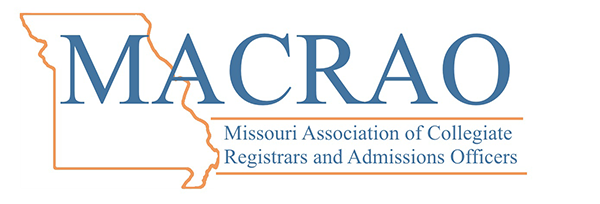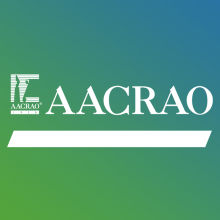MACRAO Legislative Update 2019-05-31
Below are the highlights. The session ended. Now it’s tracking what gets signed!
State Legislative Updates:
*Taken from AACRAO reports
- STEM Dual Credit: HB 1093 Allows dual credit students who are studying approved STEM courses to be reimbursed for 100% of the costs. The credits are limited to household incomes that do not exceed 110% of the standard median income in the US. Reported “Do Pass,” which means that it was passed with amendments. The change was to remove the $500 annual cap. Last action reported “Do Pass.”
- Education Task Force: HB 744 This bill would create a “21st Century Missouri Education Task Force,” to review evaluate and make recommendations regarding the condition of the state’s public higher education system. Last action was a second reading and referral.
- Fast Track Workforce Incentive Grant – HCS HB 225 Became SB 68, Goal is to meet increase the number of adults with college degrees and/or workforce training. The bill continues to move forward (it has passed out of the House and had one reading in the Senate), but the question of funding due to the recent discoveries about lower-than anticipated state revenue casts some doubt on the likelihood it can be fully funded. However, tweaks continue to be made. The current version states that to qualify individuals need to not have a degree, have an adjusted gross income of less than $80,000 if the taxpayer's filing status is married filing combined, or $40,000 if the taxpayer's filing status is single, head of household, or qualifying widow(er). In addition, such student must be at least 25 years of age. Grant funding may be renewed, but the student must continue to meet the eligibility requirements and must demonstrate a grade-point average of 2.5 on a 4.0 scale. Senate Education Committee received public testimony. Committee members asked about clawback provisions and the three-year sunset, the culture of work, and programs that would be covered by the grant. This was sent to the Governor for signing on 5/29/2019.
- STEM Certificates for high school students - HB 456 This bill would allow high schools that want to do so to develop a STEM certification for their students. This would not directly impact all of higher ed. Public hearing scheduled for 5/7. Last action was a public hearing.
- Returning Heroes – HB 400 There is an effort to modify the act to include benefits for graduate students (masters and doctorate) seeking degrees. The maximum that the students can be assessed is 30% of tuition and fees. Students must have been in active duty combat and must claim the benefit within 20 years of being discharged. The veteran must have been a Missouri resident when first entering the military or entered military service in Missouri. Changed to SB 306. Sent to the governor on 5/29/2019.
- Required On-Campus Housing – HB 435 Prohibits public institutions of higher education from requiring students to live on campus, except for first-year freshmen who may be required to live in campus housing for their first year. No update since February.
Federal/ national issues:
*Gainful Employment – Dept. of Ed published reminder of upcoming deadlines to comply with gainful employment. The rules require institutions to include the disclosure template on all promotional materials made available by or on behalf of an institution to prospective students, and to provide a copy of the disclosure template directly to prospective students before they sign an enrollment agreement, complete registration, or make a financial commitment to the institution. The department renegotiated the gainful employment rules last year, but has yet to issue a final rule. If the agency publishes its new regulation by November 1, 2019, it will take effect on July 1, 2020. If you want to check the rules, see: https://ifap.ed.gov/eannouncements/052319GEEANo120AnnApp2019GECompliDates.html
- California Consumer Privacy Act of 2018 – This probably will not have an impact on your institution, but you may want to check with your legal counsel. In June 2018 the California state legislature passed the California Consumer Privacy Act. The law goes into effect January 1, 2020 and provides for a variety of rights and protections in regards to consumer personal data and information. These rights include, but are not limited to: disclosure rights related to the nature, purpose, and use of personal information held by an entity, as well as information on the sale or transfer of personal information; “the right to opt out” of the sale of personal information; the right to refuse collection of personal information; the right to request deletion of personal information stored by an entity; and protection from discrimination against individuals evoking any rights under the Act. The Act provides for a civil right of action against entities in violation of its provisions, as well as penalties and enforcement mechanisms for the State Attorney General to take action against violators.
- Negotiators Convene to Rewrite Wide Range of Higher Ed RulesCredit hour definition remains unchanged. Cap on outsource academic programs was pulled back from 100% to 50%. Negotiators reached consensus on “regular and substantive” interaction and state authorization. Rules will continue to be communicated out.
- *Education Dept. Releases Draft Higher Ed Proposals. The U.S. Education Department released draft consensus language for the Trump administration's planned overhaul of higher education regulations. Following months of negotiations, a federal rulemaking committee recently reached agreement on rules governing college accreditation, state approval of online colleges, religious institutions, competency-based education, and TEACH grants, among other issues. Some of the agreed-upon proposals would allow colleges to get faster approval for changes to their programs; facilitate quicker federal recognition of new accreditors; allow for more targeted, less comprehensive federal reviews of accreditors; and give accreditors discretion over when to take action against a college that is out of compliance. Additionally, the panel kept intact rules that defined a credit as one hour of classroom or direct faculty instruction and a minimum of two hours of out-of-class student work each week. Department officials will formally propose the rules and solicit public comments later this year, but have not finalized a timeline.
- *State Authorization: A federal judge in California ruled that the U.S. Education Department illegally delayed Obama-era rules governing state authorization of online programs, as first reported in Politico. The agency will now be required to implement the long-delayed regulations, which were set to take effect last July. Shortly before implementation, the department suspended them until 2020, citing confusion from institutions and lobbying groups. The Obama-era state authorization rules could go into effect as early as next month, according to the Politico report, while the recently agreed-upon updates could follow next year.
- *Free Speech Trump Signs Executive Order on Higher Ed. President Trump signed an executive order that addresses campus free speech and college transparency. The order directs certain federal agencies to certify that institutions receiving federal research funds comply with existing federal law and regulations on free academic inquiry. The document does not apply to federal student aid programs.
- *Call to Action on Dream and Promise Act. AACRAO joined a broad coalition of higher education groups in support of the Dream and Promise Act of 2019 (H.R. 6). The measure—which would provide permanent legal protections and a path to citizenship for undocumented immigrants brought to the U.S. as children—includes new language providing protections for Temporary Protected Status (TPS) and Deferred Enforced Departure (DED) recipients. The coalition strongly urged House leaders to advance this important legislation. Further, we encourage our members and state & regional organizations to use AACRAO's online Advocacy Center to reach out to their U.S. Representative and request Congress to act quickly and pass H.R. 6, The Dream and Promise Act of 2019.
- *Lawmakers Reintroduce College Transparency Act. A bipartisan group of lawmakers in the House and Senate reintroduced legislation that would overturn the ban on a federal postsecondary student-level data system. The College Transparency Act aims to modernize the Education Department's National Center of Education Statistics (NCES) college reporting system to include program-level data on student outcomes such as enrollment, completion, and post-college success across colleges and majors. A federal ban on student-level data has been in place since 2008. However, bipartisan momentum has gathered behind the legislation. Senate Health, Education, Labor and Pensions Committee Chairman Lamar Alexander (R-TN) suggested in a speech last month that the College Transparency Act was one of several bipartisan bills that could be included in a reauthorization of the Higher Education Act.
- *Trio of Bills Aim to Make College Costs More Transparent. U.S. Senators Chuck Grassley (R-IA) and Tina Smith (D-MN), along with Joni Ernst (R-IA), introduced three bills that seek to ensure students and their families have access to better information to estimate the costs of attending college. The Net Price Calculator Improvement Act would require institutions to display prominently on their websites the costs of tuition, room and board, and other expenses. The bill would also authorize the Education Department to develop a "universal calculator" to compare individualized estimates of their net price across multiple colleges at one time. The Understanding the True Cost of College Act would create a universal financial aid award letter so that students could easily compare financial aid packages between schools. The Know Before You Owe Federal Student Loan Act would strengthen the current loan counseling requirements for institutions to ensure students are provided with timely and relevant information about student loan borrowing. U.S. Representatives Elijah E. Cummings (D-MD) and Brett Guthrie (R-KY) introduced companion legislation for the Net Price Calculator Improvement Act in the House.
- *House Passes Legislation to Expand Campus Voting. House Democrats passed a sweeping electoral reform bill in a 234-193 party-line vote. The For the People Act, H.R. 1, aims to expand voting rights and contains language meant to make it easier for college students to register and vote. The legislation includes language that would require colleges to appoint "campus vote coordinators" responsible for helping students register. The coordinators would send voter registration information and forms to all students at least twice a year and at least 30 days before any federal or state election. The legislation would also create competitive grants for colleges that sponsor large on-campus voter mobilization efforts and invite candidates to speak on campus, among other things. The For the People Act is not likely to gain traction in the Republican-controlled Senate
- *Education Dept. Releases Draft Higher Ed Proposals. The U.S. Education Department released draft consensus language for the Trump administration's planned overhaul of higher education regulations. Following months of negotiations, a federal rulemaking committee recently reached agreement on rules governing college accreditation, state approval of online colleges, religious institutions, competency-based education, and TEACH grants, among other issues. Some of the agreed-upon proposals would allow colleges to get faster approval for changes to their programs; facilitate quicker federal recognition of new accreditors; allow for more targeted, less comprehensive federal reviews of accreditors; and give accreditors discretion over when to take action against a college that is out of compliance. Additionally, the panel kept intact rules that defined a credit as one hour of classroom or direct faculty instruction and a minimum of two hours of out-of-class student work each week. Department officials will formally propose the rules and solicit public comments later this year, but have not finalized a timeline.
- *Senators Reintroduce Dream Act. U.S. Senators Lindsey Graham (R-SC) and Dick Durbin (D-IL) introduced the Dream Act of 2019, which would provide dreamers a chance to earn lawful permanent residence and a path to American citizenship. House Democrats introduced their version of the Dream Act in early March—the Dream and Promise Act—which includes the elements of the Senate bill, as well as new language providing protections for Temporary Protected Status (TPS) and Deferred Enforced Departure (DED) recipients. AACRAO is listed in support of both the U.S. Senate and House measures.

